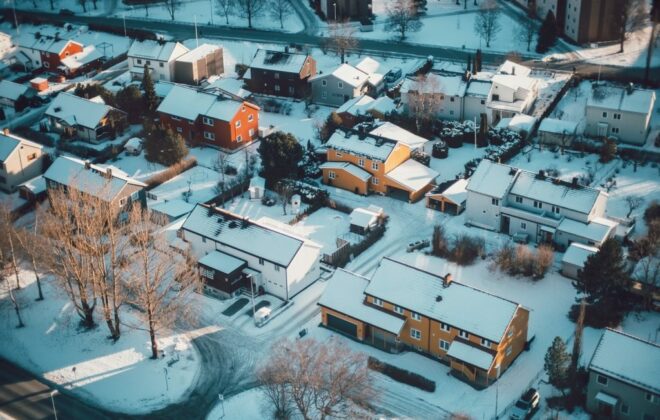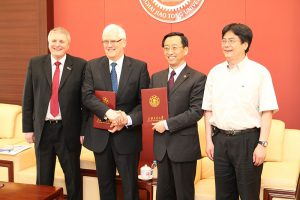LNG: How to predict an explosive boiling accident
My PhD project is about making marine production and shipping of liquefied natural gas (LNG) safer.
Natural gas is very important for the Norwegian economy. In fact it recently surpassed oil, making it Norway’s largest export in terms of revenue. While it is a fossil fuel, it is the most environmentally friendly of them all, and will likely be a part of the world economy for decades. In order to efficiently reach far away markets, it is liquefied by extreme cooling to a cryogenic state and put in large carrier ships.
The mystery is the motivation
During loading/offloading and shipping there is a risk of spills, and such LNG spills have been shown to cause a special kind of explosive and dangerous accident called Rapid Phase Transition (RPT). However, the explosion does not always occur and nobody can clearly predict if and when it will happen. This mystery is the core motivation for my project.
In the video below you can see such an explosion at 0:48:
The scientific literature has identified film boiling as a key concept in explaining the triggering of RPT explosions. This phenomenon initially stabilizes the LNG boiling process, and if the film boiling suddenly breaks down, the explosion will be triggered.
This is a complex and multidisciplinary physics problem that involves transient multi-phase fluid mechanics,thermodynamics, high-gradient heat transfer and strong vaporization effects. The main objective of my work is to reveal the conditions of film-boiling stability for a cryogenic droplet submerged in water. If this is achieved, one can more easily predict the explosions and one may be able to engineer for accident avoidance.
How to reach the goal
My field of study is mainly in fluid mechanics, while bringing in elements from related fields such as thermodynamics and kinetic gas theory. My main tools are theoretical/mathematical and computational. The goal is to develop appropriate and consistent model simplifications to reduce the mathematical and computational complexity of the problem while preserving the important features of its physics.
The planned approach is superficially similar to the well known lubrication approximation, but with several complications. These include treating the evaporating interface correctly, allowing variable density and temperature, and accounting for a spherical geometry. In the end, a considerable numerical framework will be necessary to solve the model.
This blog post was published on February 1st, 2017 on www.ntnutechzone.no

Related Posts
Search
Søk
Categories
- Arctic Research
- Arkitektur
- Bærekraft
- Bioingeniørfag
- Biologi
- Biology
- Biomedical Laboratory Science
- Biotechnology
- Bioteknologi
- Chemical Engineering
- Chemistry
- Climate
- Computer Science
- Datateknologi
- Digital
- Elektronikk
- Energi
- Energi
- Energy
- Engineering
- Engineering
- Environment
- Food Science
- Forskning
- Fysikk
- Fysikk
- Havbruk
- Informasjonsteknologi
- Informasjonsteknologi
- Ingeniørvitenskap
- Kjemi
- Kjemisk prosessteknologi
- Kjemisk prosessteknologi
- Kreftbehandling
- Kybernetikk
- Marine Technology
- Materialer
- Materials Science
- Materialteknologi
- Matvitenskap
- Meninger
- Miljø
- Min ph.d.
- My PhD
- My PhD
- My postdoc
- Nanotechnology
- Nanoteknologi
- Ocean
- Oil and gas
- Physics
- Research
- Simulering og visualisering
- Spør en forsker
- Studentliv
- Sustainability
- Ukategorisert
- Universitetsliv
- University Life
Kategorier
- Arctic Research
- Arkitektur
- Bærekraft
- Bioingeniørfag
- Biologi
- Biology
- Biomedical Laboratory Science
- Biotechnology
- Bioteknologi
- Chemical Engineering
- Chemistry
- Climate
- Computer Science
- Datateknologi
- Digital
- Elektronikk
- Energi
- Energi
- Energy
- Engineering
- Engineering
- Environment
- Food Science
- Forskning
- Fysikk
- Fysikk
- Havbruk
- Informasjonsteknologi
- Informasjonsteknologi
- Ingeniørvitenskap
- Kjemi
- Kjemisk prosessteknologi
- Kjemisk prosessteknologi
- Kreftbehandling
- Kybernetikk
- Marine Technology
- Materialer
- Materials Science
- Materialteknologi
- Matvitenskap
- Meninger
- Miljø
- Min ph.d.
- My PhD
- My PhD
- My postdoc
- Nanotechnology
- Nanoteknologi
- Ocean
- Oil and gas
- Physics
- Research
- Simulering og visualisering
- Spør en forsker
- Studentliv
- Sustainability
- Ukategorisert
- Universitetsliv
- University Life



